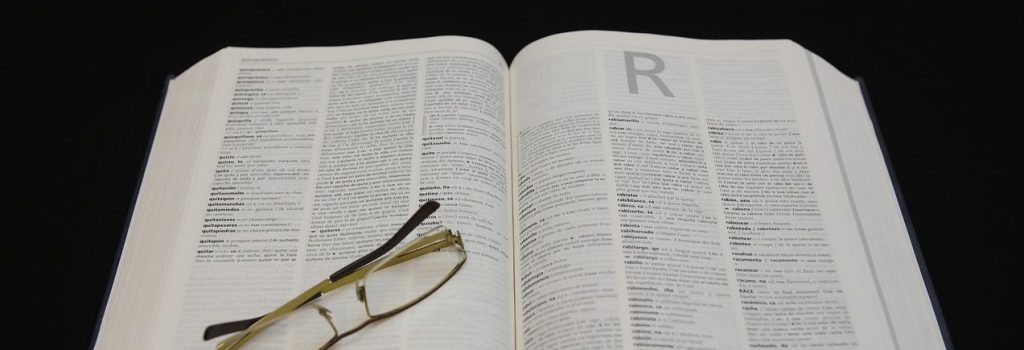
Recently a survey from FREEandCLEAR revealed some surprising, even startling, information about how well many homebuyers understand the basics about mortgages. For example, close to 30% of those surveyed did not know that a shorter loan term – 10 years versus 30 years, for example—meant that they’d pay less interest over the life of the loan. And on a more humorous note, 2% thought that government-sponsored mortgage giant Fannie Mae was Alexander Hamilton’s wife and 1% that it was George Washington’s wife.
You’re welcome to check out the survey yourself to see all the results. In the meantime, we wanted to do our part to educate our homebuyer audience by providing a list of some common terms they will likely encounter during the home buying process.
10 Terms Every Homebuyer Should Know
- Adjustable-Rate Mortgage (ARM) – For this type of loan, the interest rate is typically lower than with a fixed-rate mortgage for an introductory period, and then the interest rate fluctuates up and down over time. The amount your loan will go up or down is based on an index – or benchmark interest rate determined by market conditions – as well as the margin set by your lender at closing. According to the Consumer Financial Protection Bureau (CFPB), there are several different types of caps which control how much your loan can go up, and the typical introductory period ranges from three to five years. This type of loan is more complex than a fixed-rate mortgage.
- Fixed-Rate Mortgage – For this type of loan, the interest rate you are charged is set at closing and stays the same for the life of the loan.
- Pre-Qualification – This is when a lender provides you with a mortgage amount for which they estimate you will be able to obtain a loan for in the future. They typically base this amount on information you have provided them, without verifying the information. Many homebuyers like to pre-qualify before home shopping so they roughly know how much home they can afford. However, pre-qualifying does not guarantee that you’ll be able to obtain a loan.
- Pre-Approval – Lenders usually issue this type of approval in a written document after verifying information such as your income, credit score, debt-to-income ratio and other information. It holds more weight than a pre-qualification, and may state that unless issues arise – you lose your job or the home does not appraise for the expected amount, for instance – you will be approved for the mortgage. However, it’s important to note that this is still not a total guarantee that you’ll be able to obtain a loan.
- Earnest Money Deposit – Also called a “Good Faith Deposit,” this is money that you put down when you make an offer on a home to show that you are serious about your offer and intent to purchase the home. This deposit may or may not be refunded if you change your mind.
- Contingencies – These are criteria included in the home purchase contract that have to be met in order for the purchase to continue. These criteria can be requested by either the seller or the buyer. For example, you may indicate in the contract that the home must be inspected to determine if there are any unforeseen problems before you buy it. The seller, on the other hand, may request that they be able to remain in the home until a certain date.
- Appraisal – A home appraisal is an unbiased opinion of a home’s value which is determined by a licensed professional. Lenders require appraisals because they do not want to loan more than a property is worth, since with a mortgage, the property actually becomes collateral. This means that if you default on your loan – the bank may have to foreclose on the property and sell it to cover your loan.
- Closing Costs – These are the all costs that you are charged at the time you actually purchase (or close) on your home. Closing costs include loan origination fees, points, taxes, attorney’s fees, survey and appraisal costs, and other charges related to the home purchase.
- Escrow – This is an account set up by your mortgage lender to hold funds to cover expenses related to your home such as property taxes, home insurance premiums and private mortgage insurance. A portion of your monthly mortgage payment will typically go into this account, and some funds may also be collected for the account at closing.
- Private Mortgage Insurance (PMI) – This type of insurance is designed to protect the lender in case you default on your mortgage. It is only required if your down payment is less than 20% of your loan amount. Once you have paid your loan to the extent that you have at least 20% equity in your home, the PMI can typically be cancelled. PMI fees can vary from around 0.03% to about 1.5% of the loan amount.
Lakeside Title Streamlines Real Estate Transactions
At Lakeside Title Company, we offer title insurance and numerous title services in Maryland, Washington, D.C., Northern Virginia, and Southern Pennsylvania. We work closely with realtors, buyers, sellers and lenders, and diligently strive at all times to get the title commitment and a primary settlement sheet to lenders early in the settlement process. We also believe in providing helpful resources to homebuyers so they have a better understanding of mortgage closing processes. To learn more, give us a call at 410-992-1070.




